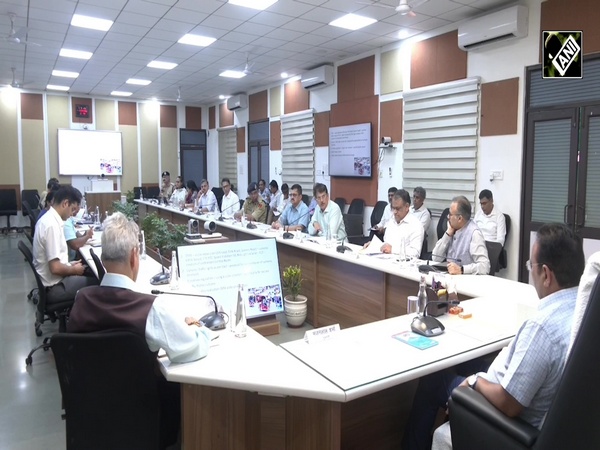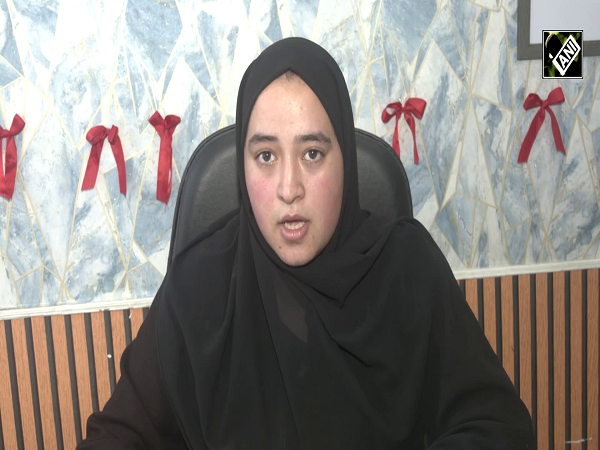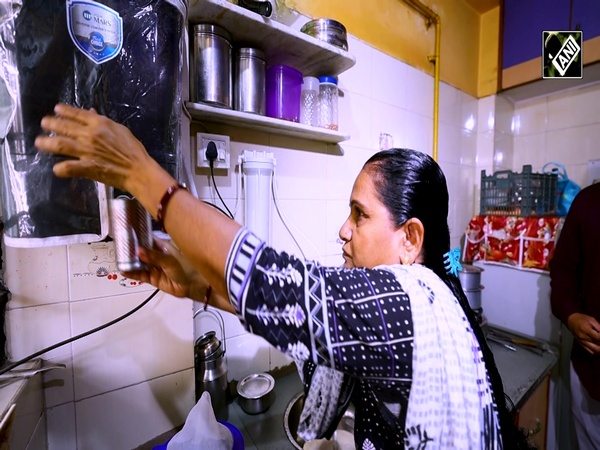IISER Bhopal researchers develop organic crystalline materials for highly sensitive pressure sensors
Jan 19, 2023

Bhopal (Madhya Pradesh) [India], January 20 : Indian Institute of Science Education and Research (IISER) Bhopal researchers have developed a new, flexible organic crystal that shows great potential for use in highly sensitive pressure sensors.
These crystals were developed in IISER Bhopal, and the understanding of the response of these crystals to mechanical deformation was done in collaboration with researchers from the University of Queensland and Queensland University of Technology. The device fabricated with this material has high sensitivity to pressure, when compared to existing materials, making it a promising component for the future development of the technology of pressure sensors.
These materials are environment friendly and can be used in designing flexible electronic devices in healthcare, intelligent systems, wearables, and self-powered devices.
The findings of the research have been published in a journal Small in a paper co-authored by Prof Deepak Chopra, Dr Mitradip Bhattacharjee and their research scholars Ms Avantika Hasija and Mr Lakhvir Singh from IISER Bhopal along with Dr Amy J Thompson, Dr Jack K Clegg, Dr John C McMurtrie from The University of Queensland, Australia and Ms Megha S N and Ms Kiran S R N Mangalampalli from SRM Institute of Science and Technology, Kattankulathur, Chennai.
The researchers from IISER Bhopal and University of Queensland have developed a new organic crystal - 4-trifluoromethyl phenyl isothiocyanate (4CFNCS) - that is flexible enough to be bent, twisted, and coiled.
Speaking about the research, Prof Deepak Chopra, Department of Chemistry, IISER Bhopal, said, "We thoroughly analysed 4CFNCS using sophisticated computational and challenging experimental techniques such as synchrotron microfocus X-ray diffraction measurements to understand as to why these are so flexible."
The researchers not only have uncovered the origin of flexibility in this new type of organic crystal, but they have also successfully used it to fabricate highly sensitive pressure sensors. Piezo-resistive or pressure sensors are devices that respond to pressure or force applied to them by a change in their electrical resistance. For example, piezo-resistive sensors are typically located behind the touch surface of any touch device and are activated when pressure is applied to the surface during touch. This generates a small electrical charge that is then processed.
The collaborative team combined 4CFNCS with an electrically conducting polymer, PEDOT: PSS, to make the piezo-resistive sensor.
"The composite developed using the researchers exhibited efficient piezo-resistive response, even at high-pressure ranges, resulting in at least 1.6-times improvement in sensitivity for medium pressure range, and at least 5 times in the high-pressure range across a wide range of pressures, over other known piezo-resistive materials," said Prof Chopra.
Dr. Mitradip Bhattacharjee, Assistant Professor, Electrical Engineering and Computer Science, IISER Bhopal, said, "These materials can be made without harmful chemicals or high-energy conditions, making them better for the environment. Apart from the applications of touch screens, such materials will be of great use in the design of flexible electronic devices, such as those used in healthcare, intelligent systems, wearable devices, and self-powered devices."
















